Let’s say you just saw the results of your recent blood test and you notice that your cholesterol is high. What do you do? Well, of course, you should talk to your doctor. But many of us want to know if there is something we should do now. So, you fire up your internet browser and search for “lowering high cholesterol” from reliable health sources.
You hope to find reliable health sources that describe a lifestyle that lowers your cholesterol into the acceptable range.
You may find some information from reputable sources like Mayo Clinic and Cleveland Clinic, but you’ll find many more that are ads from cholesterol-lowing drug companies. But that’s not all. You’ll also find offers to sell you diet plans and meal-delivery services. You don’t know whether these are reputable or not because they are trying to sell you something.
The bottom line is reliable health sources are available to you online. But, unfortunately, so are many UNRELIABLE sources whose goal is to move your money from your bank account to their bank account. How do you know what’s reliable?
Rule Number 1: The Information MUST Be Peer-Reviewed
Your health is too important to your well-being to not use reliable health sources. If you, instead, rely on social media posts like Facebook or Tic-Tock, you must remember those are opinions that are NOT backed by peer-reviewed research.
What is peer-reviewed research? It’s a process where any scholarly article is reviewed by appropriate peers before that article is ever published. Appropriate peers are experts in the field of whatever the article is about.
For example, let’s say a medical researcher discovers something that cures cancer. She decides to publish the result in one of the American Cancer Society journals. Before the article will ever see the light of day, it will be reviewed by several peers (other researchers who study, in this case, cancers). They ask questions, check accuracy, and make sure it’s reliable information. My experience with peer-reviewed articles is there is always some back and forth before the article is published.
So, two things are important here:
- Peers check the accuracy of the content and scientific merit, and
- Those peers are knowledgeable in the specific field of study.
I’m sure that isn’t the case for social media sites.
Rule Number 2: The Information Comes from Reputable Research Projects
Okay, this is a difficult one. The example I’ll give is the opposite of a “reputable research source.”
There is a ton of research related to sports drinks. At the end of the day, the ingredients in all sports drinks (except the newer zero-calorie versions) include sugar, water, and some electrolytes (sodium, potassium). A researcher at the University of California San Francisco’s School of Medicine discovered that there were hundreds of relevant studies on the benefits of sports drinks. But were they unbiased studies?
What she found instead of unbiased research was that most of these studies didn’t pass the conflict-of-interest test. In other words, the funding source for the research was none other than the sports drink companies. And they had a vested interest in the outcomes. But that alone isn’t a reason to throw the research out.
What is a reason is that a group of researchers from the Department of Medicine, Children’s Hospital, Boston found that industry-funded researchers of sports drinks were 7.6 times more likely to find NO connection between sugary drinks and obesity (and by the way, numerous reliable sources show there is a strong connection). That conclusion suggests a strong bias. And biases in any research, let alone health-related research, is a reason to avoid those results.
Reliable Health Sources You Can Trust
So, what are these reliable health sources? The rest of this page is separated into sections for research hospitals, universities and colleges, and government sources. These all pass the two rules I explained above.
Research Hospitals
The Mayo Clinic: This is a nonprofit research and educational hospital that has been around a long time. You may have heard your grandparents taking about Mayo. It’s based in Minnesota but there are also branches in Arizona and Florida.
The Cleveland Clinic: This is ranked as the number 1 hospital for cardiology and heart surgery in the United States for the last 28 years. There isn’t much else that needs to be said. They have an excellent health library that is easily searchable and free.
Johns Hopkins Hospital: they rank number 9 in cancer diagnosis and treatment, and number 13 in cardiology.
Government Sources
The National Institutes of Health National Library of Medicine: This is a repository of peer-reviewed, and authors are researchers from universities and research hospitals. It’s a reliable source for anything health related. Even though these are research articles, they usually have a good synopsis of the highlights.
The Food and Drug Administration (FDA): The FDA makes sure our food is safe (except for meat – that’s regulated by the US Dept of Agriculture) and ensures that drugs and vaccines are safe AND effective.
The Centers for Disease Control and Prevention (CDC): The CDC is the US’s leading science-based, data-driven government organization that protects the public’s health. They have their own laboratories and researchers.
World Health Organization (WHO): Founded in 1948, WHO is the United Nations agency that promotes health, keeps the world safe, and serves the vulnerable.
Non-Profit Organizations
The American Cancer Society (ACS): Founded in 1913, they publish scholarly research and information pertaining to cancers. They support cancer research and have a vision to end cancer as we know it. They help people and families with cancer.
The American Heart Association (AHA): Founded in 1924 by six cardiologists. At that time, if you had heart disease, you were destined to spend the rest of your (short) life in bed. They have funded researchers, nine whose AHA-funded work led to the Nobel Prize. They also certify CPR and AED training (have you been certified?).
The American Medical Association (AMA): Founded in 1847, they publish the Journals of the American Medical Association. But they do a lot more than that.
Universities and Colleges
Harvard Health Publishing: They publish consumer health information from Harvard Medical School and the graduate medical school of Harvard University.
Certifying Organizations
National Commission for Certifying Agencies (NCCA): This is the accreditation body for the institute of Credentialing Excellence. It started in cooperation with the US government to develop standards for health-related certification programs. I don’t specifically use information from NCCA, but I make sure they accredit any certification agency I reference.
National Academy of Sports Medicine (NASM): When I was looking for a certification to become a certified personal trainer, I chose NASM because they are thorough and back everything they teach and do with peer-reviewed research. And of course, they are certified by the NCCA.
International Sports Sciences Association (ISSA): Another reputable accredited personal trainer certifier. They, too, are accredited by NCCA.


 Hi, I’m Kirby Chapman, the creator behind The Healthy League. You can read about
Hi, I’m Kirby Chapman, the creator behind The Healthy League. You can read about